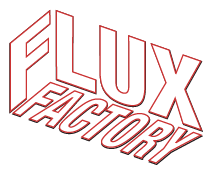
Helen Kaplinsky
Helen Kaplinsky (born 1983) is an independent curator and writer based in London. She is currently a Fellow with the Contemporary Art Society producing an exhibition at the Whitechapel Gallery in 2013 and Middlesborough Institute of Modern Art in 2014 (both UK). During 2013 she has spent time in North America organising ‘Self-Interruption’ at Jack Chiles Gallery (NYC) and ‘When Platitudes Become Form’ public programme at Mercer Union (Toronto). Recent projects with the Arts Council Collection include ‘Image as Witness’ for the European Commission (2013, London) and ‘British Modern Remade’ at Park Hill Estate (2012, Sheffield). Recent exhibitions including new commissions by emerging artists include ‘Thrall’dom’ at LIMAZULU and ‘Auto Couture’ at a bespoke automotive showroom (both London). She lectures in Art and Design history at the City Literacy Institute (London) and has undertaken a number of curatorial residencies in France, China and the UK.
As part of her residency at Flux Factory, Helen is involved in the following projects
_____________________
Preview: Preview on October 20th, 2013, 6-8pm
Curated by Helen Kaplinsky
The self-interrupting body.
The image of a stalled system or device.
The alchemical romance of bio-polymer research, from the finery and wonder of pinkish grey silk embedded with gold nano-rods to a grave-yard of assault by photogram.**
Bringing physical awkwardness to the printmaking process. ***
The violence of gravity forcing impact onto an unknown material and with unknown consequences, suggesting a possibility of breakage. ****
* A result of a three month performance by Maurice Carlin during the summer of 2013: ‘Performance Publishing: Regents Trading Estate’. HARD COPY includes texts by Karen Archey, Huw Lemmey, Joanne McNeil, Danielle Rago and is edited by Helen Kaplinsky.
** For the past month Josephine Callaghan has been based in Tufts University’s bio-med lab where researchers are ‘reverse engineering’ silk as a biocompatible plastic. Silk cocoons are processed into a benign polymer with a programmable degradation rate. The artist has taken silk film through photochemical processes, coating these delicate surfaces with cyanotype solution. The blueprint develops in water, a process which narrowly dissolves the sheath that carries it. The making of the image and destruction of surface is simultaneous.
*** A large piece of foam acts as Maurice Carlin’s unsustaining printing ‘plate’. Marks of the artist’s hands, knees and body are creased into the paper, leaving contrasting areas of dark and light when the ink has passed across the paper. When viewed from a distance the images appear initially as photographic, what could be an image of a sheet of hanging fine fabric. A closer reading reveals that the paper itself has suffered a trauma, thus bringing the image through the ‘photographic window’ and into an immediate first hand presence.
**** Daniel Lichtman cuts images, texts, characters and stories clear from their originating context. In this case falling bodies. Foregrounding the body as an object, the object falls freely, the body is free. Made safe by the artist’s selective digital harvesting, the risk of falling, of unwillfull impact, is dispersed. The body dives into the safety of the gallery.
_____________________
Throughout October on Are.na and culminating at the Public School on the 24th, this discussion addresses surplus knowledge, how knowing too much and notions of criticality in art education can lead to a stasis. The term ‘Over-education’ has appeared frequently in recent years, perhaps most evidenced by the Occupy Wall St. mantra ‘Over-educated and Under-employed.’ In this case, graduates are describing a personal economic over-investment into their future.
There are a couple of ways to add content to Arena, you can either join Arena and add that way, or you can use this unique email address to send stuff which will be automatically added: post+nini25@are.na Just put ‘Over-education’ in the subject line.
This conversation is initiated by Maurice Carlin, Salford (UK) based artist and founder of Islington Mill Art Academy; Carson Salter, MIT researcher in identity, positioning and art enterprise and author of Teachable File; Helen Kaplinsky, London based curator and previous member of Islington Mill Art Academy, and Nova Benway, curator and member of The Public School, New York.
